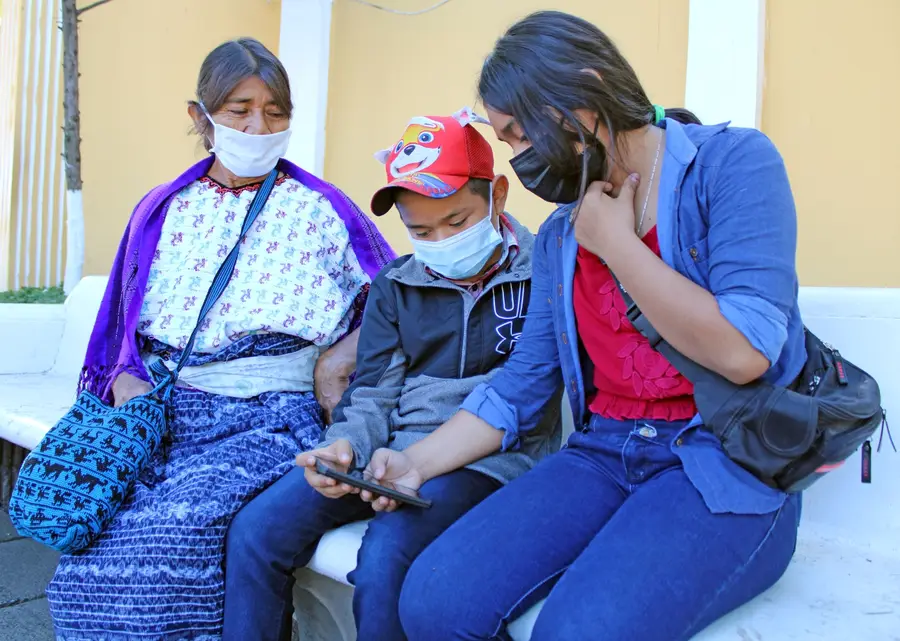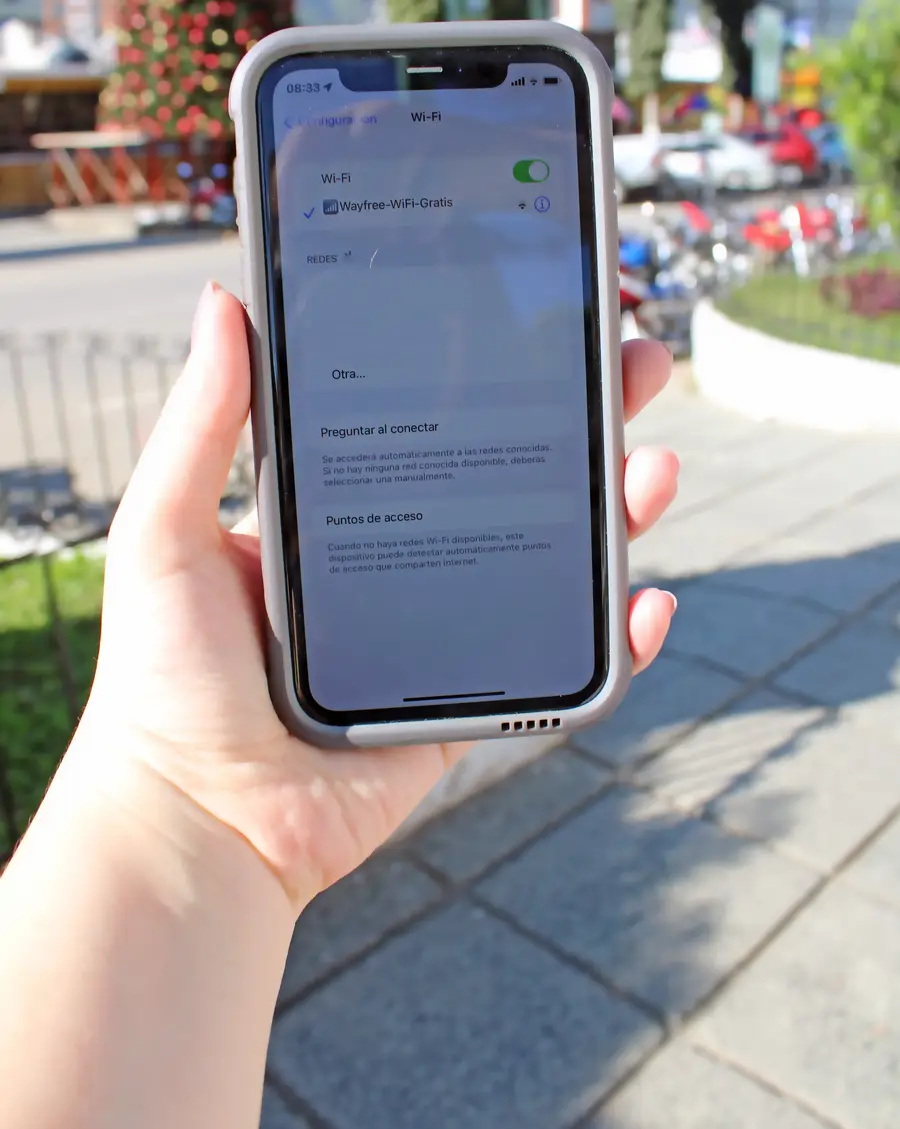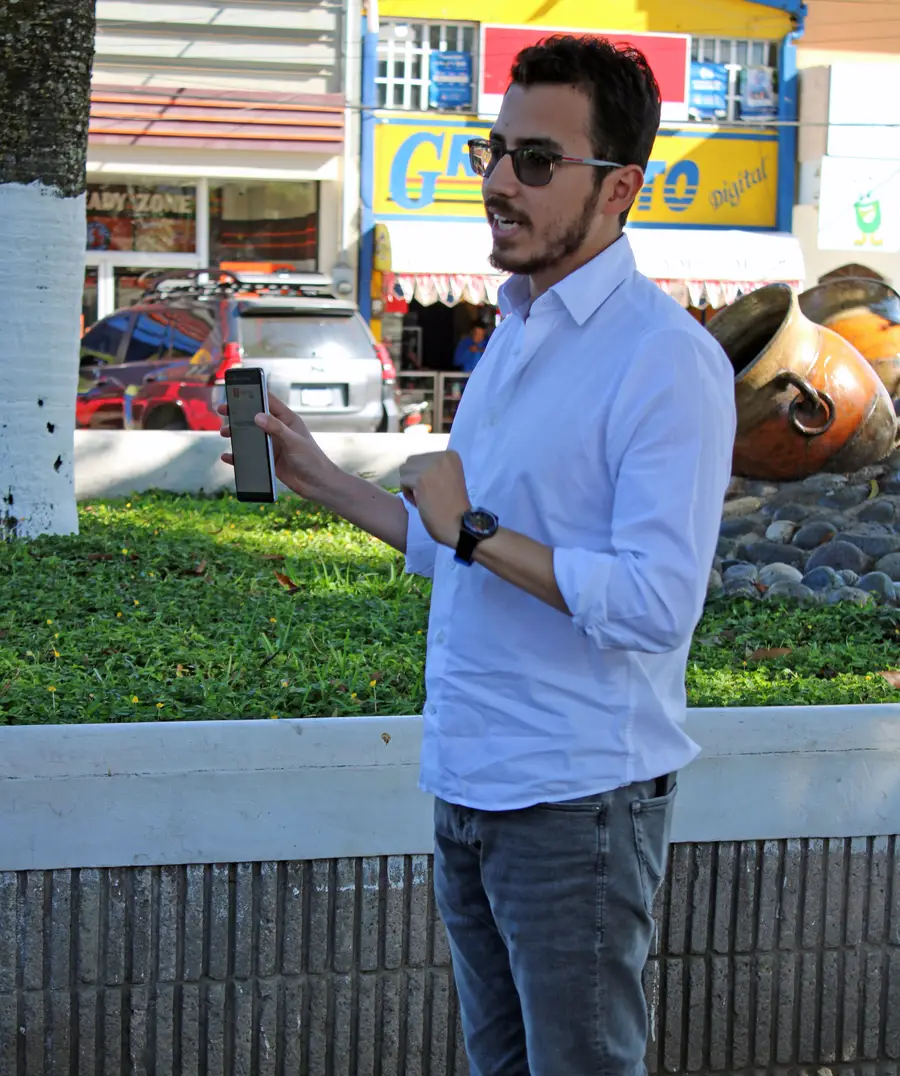Free Internet Zones Create New Opportunities for Education in Guatemala

Diego Aguirre
Chief Impact Officer, Wayfree

Secondary school student Keilyn Iboy (right) enjoys access to free internet services with her younger brother, Jefry Alfredo, and their mother, in a local park. Credit: USAID BEQT Activity.
Telemedicine. Shopping. Online learning.
Many aspects of everyday life take place online these days, and education is no exception. In Guatemala, internet infrastructure and devices are frequently available, but the cost is prohibitive: For the poorest 40 percent of Guatemalans, the price of broadband internet is equivalent to 28 percent of household income.
Free community internet means children and youth can take online courses, learn a new language, download books, and conduct research for school projects—expanding opportunities for students to learn and for communities to connect.
Through the USAID Basic Education Quality and Transitions Activity (BEQT), RTI has partnered with Guatemalan social enterprise Wayfree to scale its free internet model to schools and communities for more flexible education access, expanding coverage to 100 percent of municipalities in Baja Verapaz, Huehuetenango, El Quiché, and San Marcos through 92 internet hotspots in community parks.
This partnership is helping change the educational trajectory for students like Keilyn Iboy, one of the few young women in her community to transition from elementary to secondary school. She uses the free internet in her local park to learn more about science, her favorite subject.
"For me, school has been a place where I could find out how much I love natural sciences and to learn how to search online for videos explaining more about science,” Keilyn says. “Now that I'm on school vacation, I am teaching my little brother everything I learned, using the internet at the (municipal) park."
We spoke with Diego Aguirre, Chief Impact Officer at Wayfree, and Elizabeth Marsden, a Project Coordinator at RTI, to learn more about this innovative partnership and what it means for locally led development.
Elizabeth: The BEQT project focuses on the Western Highlands of Guatemala, where the population is majority indigenous and faces issues like poverty, gender inequity, and long-standing gaps in access to necessities, like the internet and education, especially for Mayan language speakers.
When crises hit, these gaps become chasms. This project is enabling more remote and nontraditional learning opportunities in these disenfranchised areas, with a focus on the transition from primary to lower secondary school, as this is when students experience particularly high dropout rates. And the more options we can give students to learn, the more chances they’ll have for educational success.
Diego: COVID-19 drove so much online and the fast-paced digital transformation it sparked went beyond internet for social media and communication: health, education, work, and more, moved online. A few years ago, Wayfree began deploying free internet access in parks in Guatemala using an ad-based model that requires a user to view an advertisement or take a survey to get free internet access.
These free internet zones have brought community members together digitally and physically in the parks. Parents, grandparents, teachers, and students use these zones to access what they need, and students can register with their age to receive targeted education-related updates and resources, and to work on their homework.

Through USAID BEQT, RTI has partnered with Wayfree to deploy free internet access in parks in Guatemala using an ad-based model. Credit: Wayfree
Diego: Alliances have been powerful for sustainability. We’ve developed cooperative agreements with municipalities and utility companies across Guatemala to leverage their existing infrastructure to expand internet access to previously unreached areas. This has been huge for our ability to scale rapidly and cost effectively.
The project helps with hardware and installation and, once communities have access, it becomes self-funding through the ads and sponsored surveys. We’re committed to maintaining this service, even after the project ends. Our goal is to make the internet accessible to everyone.
Elizabeth: COVID-19 showed the world how important flexible models of education are. Expanding internet access opens a world of possibilities. The project has deployed computers in schools and community centers and is working on digital literacy, but it all starts with our partnership with Wayfree to scale free internet to areas that need it.
In some cases, local internet isn’t available at all and in others, the cost of internet access puts it out of reach for most families. Our partnership with Wayfree directly addresses both issues. And, as a local Guatemalan organization, Wayfree is not only meeting the project’s needs, but is expanding across Guatemala, and to other countries as well.

Diego Aguirre, Chief Impact Officer at Wayfree, demonstrates how to use the free Wi-Fi made possible by USAID at a park in Baja Verapaz, Guatemala. Credit: Wayfree
Diego: First, we’re finding that the free internet zones in parks go beyond a digital connection and accessing educational resources. Community members are making physical, offline connections to one another as they gather in these spaces, which is creating a sense of community belonging, connection, and identity.
Second, we’ve been amazed to see just how much of the younger generation is using these zones. We’ve provided nearly 10 million free internet sessions since our collaboration began in 2021, with about 42% involving users who are under 25 years old.
Third, this partnership has helped us level up our understanding of the traditional aid sector and how to quantify and showcase our impact in a way that appeals to funders and, as a result, we’ve already been able to connect with other donors in the aid space. We’re excited about this additional avenue for growing our social impact-focused business.
Elizabeth: In tech, there is a tendency to think “West is best,” but there are so many local technology organizations, like Wayfree, that are innovating and doing very interesting work that aid projects can connect with, if we take the time to seek them out and be creative about how they can fit into project needs. It’s been a wonderful experience working with Wayfree. In fact, we’re excited to be partnering with Wayfree on at least two additional donor-funded projects in Latin America in the near future.
Our partnership didn’t start with a capacity building conversation, but rather with asking how we could help each other and the communities we were engaged with, and we’ve been learning more about one another as we work together. Locally led development runs into challenges when it becomes dictating needs to local organizations and expecting them to get up to speed all at once on how the aid world works. Through this partnership we’ve been able to work with Wayfree on something they were already doing, which they’ve continued to run with while learning USAID requirements along the way. This partnership feels like a true triple win as it has brought together USAID resources, RTI’s experience, and Wayfree’s local knowledge, relationships, and innovative solutions to make a difference in rural students’ lives.
Learn more about RTI’s work in Guatemala and in international education.